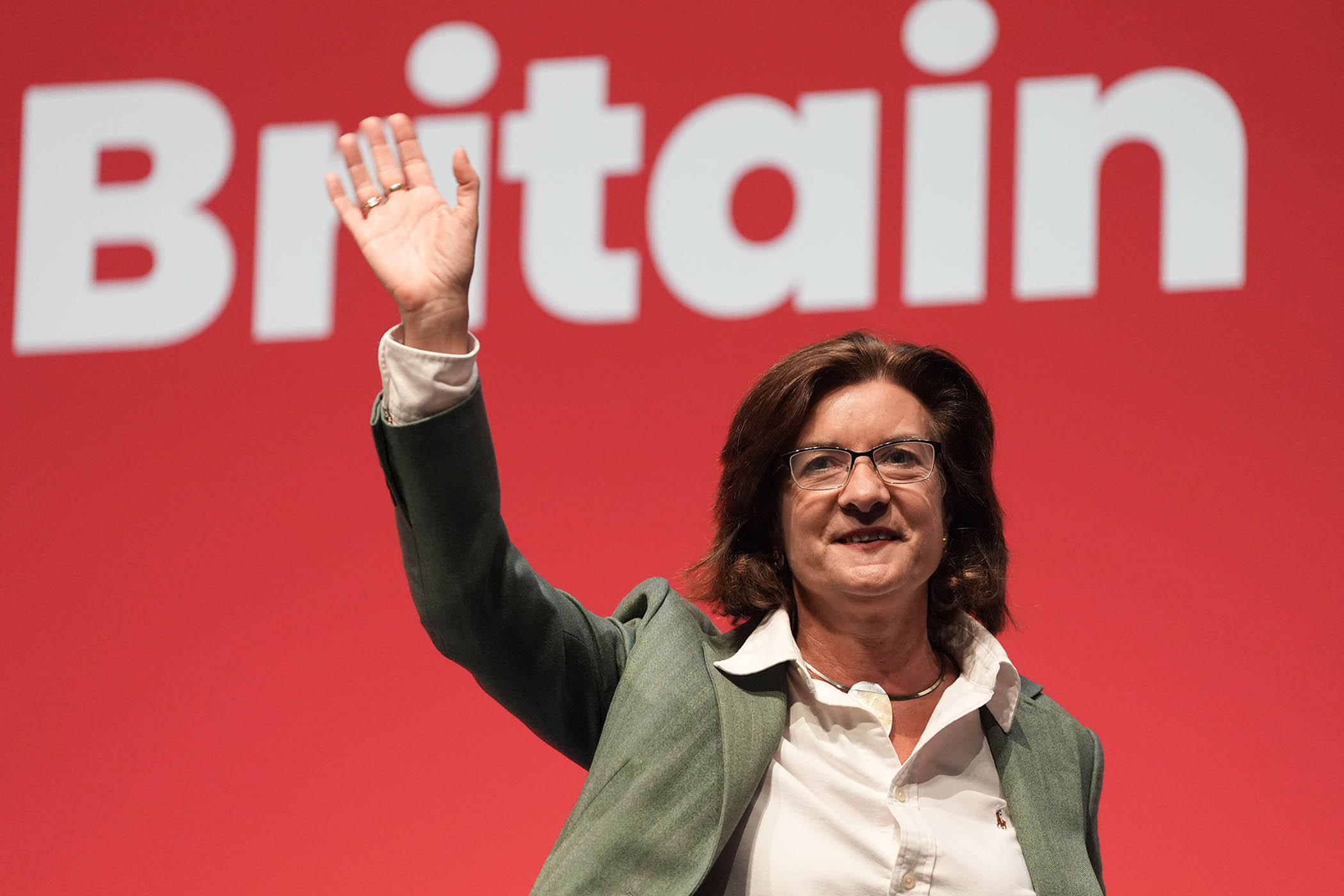It would be terribly unjust to Eluned Morgan, Labour’s Welsh first minister if Thursday’s Caerphilly byelection were lost. She’s played a blinder in the toughest of circumstances.
She came into office unexpectedly after a bitter ousting of her predecessor, Vaughan Gething, who wouldn’t apologise for a dodgy donation to his leadership campaign and couldn’t command confidence among his ministers, let alone the Welsh parliament.
Morgan negotiated with an unpopular UK Labour government, trailing badly in the polls and seemingly unwilling to help her. She made a request to devolve full powers over the crown estate’s wealthy assets, as Scotland has had for years, and another to the Treasury to enable her Welsh government to borrow sensibly against its own assets for vitally needed investment.
She has reformed the Barnett funding formula – the system used by the Treasury to calculate the annual block grants for the Scottish, Welsh and Northern Irish governments – unfair to Wales and over-favourable to Scotland.
Incumbents of all stripes have lost power all over the democratic world – and there’s been a Welsh Labour first minister, albeit never with an outright majority, since devolution in 1999.
Yet the problem goes deeper. Welsh Labour’s base had already started dissolving when I was MP for 25 years in the once rock-solid former coalfield constituency of Neath. My majority fell from more than 27,000 in 1997, the biggest ever registered in Neath’s history, to less than 10,000 by 2015.
This was almost entirely explained by a collapse in the turnout of Labour voters rather than a boost for other parties. I could feel it happening because of deindustrialisation and the global neoliberal economic agenda of austerity and soaring inequality. Coal mines closed along with large manufacturing plants all over the Welsh Valley as trade union membership shrank dramatically.

Lindsay Whittle, the Plaid Cymru candidate, canvasses opinion in Caerphilly last week
I was nominated by a dozen trade union branches in a hard-fought Labour parliamentary selection battle in 1990; by the time I stood down, those branches had disappeared. Most of the remainder were either public sector or vehicles for retired activists to join the ruling general committee.
I spoke at and won the majority of ward branches, but those have either been merged or barely function and are no longer the umbilical cord to Welsh Labour’s industrial communities. Strong trade unions together with local welfare, rugby and Royal Legion clubs were for generations the employment and cultural foundations of Welsh Labour.
They are now a mere shadow of their former selves as centre-left parliamentarians have been vanquished by populist forces. This phenomenon is not merely Welsh but global.
Newsletters
Choose the newsletters you want to receive
View more
For information about how The Observer protects your data, read our Privacy Policy
It is no accident that once economically buoyant Labour heartlands in Wales wanted to give the Cameron-Osborne elite a kicking by voting Brexit in 2016, similar to the former industrial fortresses in the US rust belt backing Donald Trump.
Morgan stands much taller than any rival for the post of first minister
Morgan stands much taller than any rival for the post of first minister
In France, once mighty centre-left and centre-right parties have been vanquished, first by an entirely new centrist party under Emmanuel Macron, latterly by far right and far left populists.
But that doesn’t mean Morgan cannot win next year and remain first minister. It’s one thing to protest in a byelection on a low turnout. Quite another to choose who runs your health service, your schools and your care.

Labour’s candidate Richard Tunnicliffe on the campaign trail last week
She stands much taller than any rival. Talented, bilingual, raised in a working-class community, youthfully irreverent, she genuinely speaks for the whole of Wales, Welsh and English speakers, urban and rural, young and old, professional and working class. And she knows that a modern appeal is needed for Welsh Labour.
Plaid Cymru’s leader, Rhun ap Iorwerth, has never even been a minister, let alone a first minister. Nobody knows what he would do.
Nigel Farage has not yet appointed his person in Wales to be a Reform first minister. Yet whoever that is will prioritise Reform’s promises of cuts and still more cuts.
No wonder people are already worrying about their free prescriptions and free hospital parking spaces in Labour-run Wales. For any party coming top next 7 May elections will not govern alone. The new proportional electoral system explicitly denies a majority government and ensures a coalition or minority one.
Who else better to do that first minister job bringing together everyone than Eluned Morgan?
Labour peer Lord Hain was secretary of state for Wales 2002-2010 and MP for Neath 1991-2015. His new book, Liberation and Corruption: Why Freedom Movements Fail, is published next week by Policy Press
Photographs by PA/Alamy, Matthew Horwood/Getty Images


